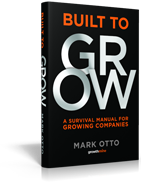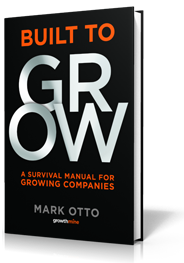
Why Smart Leaders Don’t Always Make Smart Decisions

Effective decision making is essential to a successful business. Every day we are called upon to make decisions. Some are small and have little impact. Others carry a greater weight – decisions with important consequences. Invariably, mistakes are made along the way. The difficult truth is that very important decisions, made by smart people, sometimes go very wrong.
Two Drivers Behind Bad Decisions
There are two key forces behind bad decisions: experiences and emotions.
Experiences. Our backgrounds and previous experiences color the way we think and make decisions. Most of the time, our experiences serve us remarkably well. But there are important exceptions.
When we face a situation that is clearly very different from anything in our past experiences, most of us will recognize that we need to get some help. But very often, it’s when our past experiences are similar to, but not exactly the same as, our present situation that we make the poorest decisions. When we are faced with a situation that looks familiar, we will recall our previous experiences in that situation.
So we think we’ve got the right experience to make the decision. But we don’t.
Emotions. When we recall past situations that seem similar to the current one, we also recall the emotions that are associated with them. And the stronger we associate emotions with experiences, the more they will influence our thinking.
For example, if you have experienced successful business growth, then there’s probably a strong emotional belief that your company needs to continue to grow in size and scale. Despite a desire to be objective, you may be unable to prevent the belief that “growth is good” from influencing your decisions.
Real-World Decision Making
Picture the CEO of a growing company. He views making a big acquisition as being similar to the many successful small acquisitions he’s made before. Instead of apples and oranges, the CEO sees a larger apple. He also has strong positive emotions about growth, doing deals, and taking risk. The CEO compares the big acquisition to the smaller ones and concludes that because the small acquisitions where successful, the big one is likely to be successful.
But the deal fails miserably. While the prior acquisitions looked similar, they differed significantly. Previous acquisitions had similar cultures and operations, making them relatively simple to integrate. The bigger acquisition had an unusual culture and a unique operation, making it a very different situation. While the CEO was quick to make the acquisition, someone with more relevant experience would have been better able to identify and evaluate the challenges of integrating the two companies.
All Decision Makers Are Biased
Assume that, as a decision maker, you are inherently biased. Our minds are full of all kinds of experiences and emotions, which lead us to think in a particular way. That creates bias.
Our past experiences and emotions influence us to do one thing or the other. The reality is, we are all subject to these influences.
Understanding that, it’s important to know what we need to add to our decision-making process to account for our biases. While it’s not possible to eliminate all the danger, it can be reduced.
Open and Honest Debate
Debate and challenge can ensure that biases are confronted. A leader’s willingness to hear contradictory or conflicting information is one of the most critical differentiators between effective and ineffective teams. Leaders should surround themselves with intelligent people, who have complementary experiences, and each of those people should be in a position to impact decisions.
To reduce the risk of making flawed decisions, it’s imperative to involve other people, collect additional data, insist on thorough debate, and be aware of our own shortcomings.
When were you in a situation where your experience or emotions took you down the wrong path?





